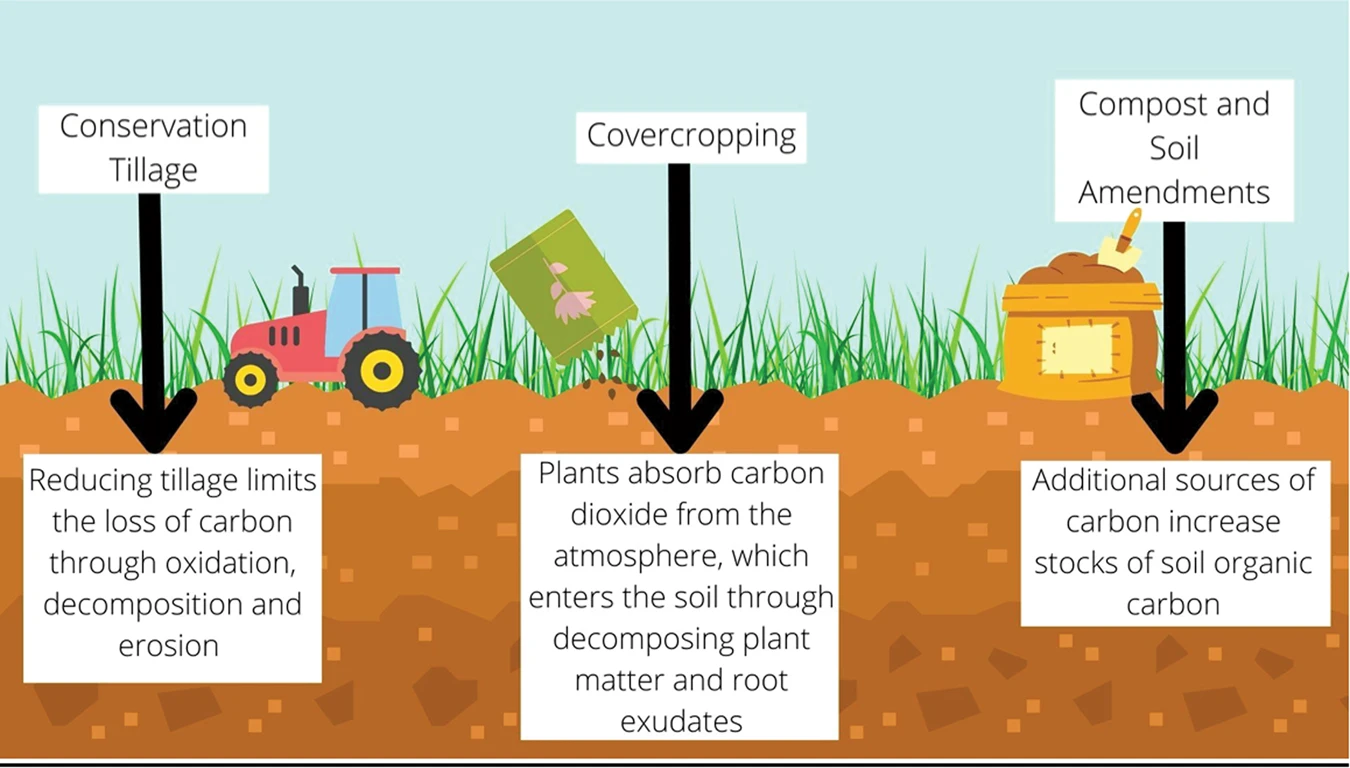September 25, 2023 | npj Climate Action |
Introduction: Efforts to mitigate climate change and achieve net-zero emissions involve not only reducing current greenhouse gas emissions, but also deploying carbon sequestration strategies, such as voluntary carbon offset markets to incentivise organic farmers to adopt related agricultural practices. Researchers from Hamilton College in USA conducted semi-structured interviews of both conventional and organic farmers to collect perspectives on soil carbon offset programs that have been implemented in the USA since 2017.
Key findings: Farmers expressed concerns about the complicated, burdensome, and unpredictable outcome of receiving offset credits. They implemented practices for their own business interests and sustainability concerns, rather than being primarily motivated by financial incentives from carbon credits. The study suggests that carbon offset credit payments for soil carbon sequestration often go to farmers already implementing these practices, and the payments are viewed as an additional benefit rather than the main motivation.
Conclusion: This raises concerns about the effectiveness of these offset markets in ensuring true additionality, which is essential for effective climate mitigation.

Fig. | Activities that enhance carbon sequestration in agricultural soils. This figure shows on-farm activities that can enhance soil carbon sequestration. In some circumstances, types of activities can be implemented to generate carbon credits under voluntary market carbon offset protocols.





